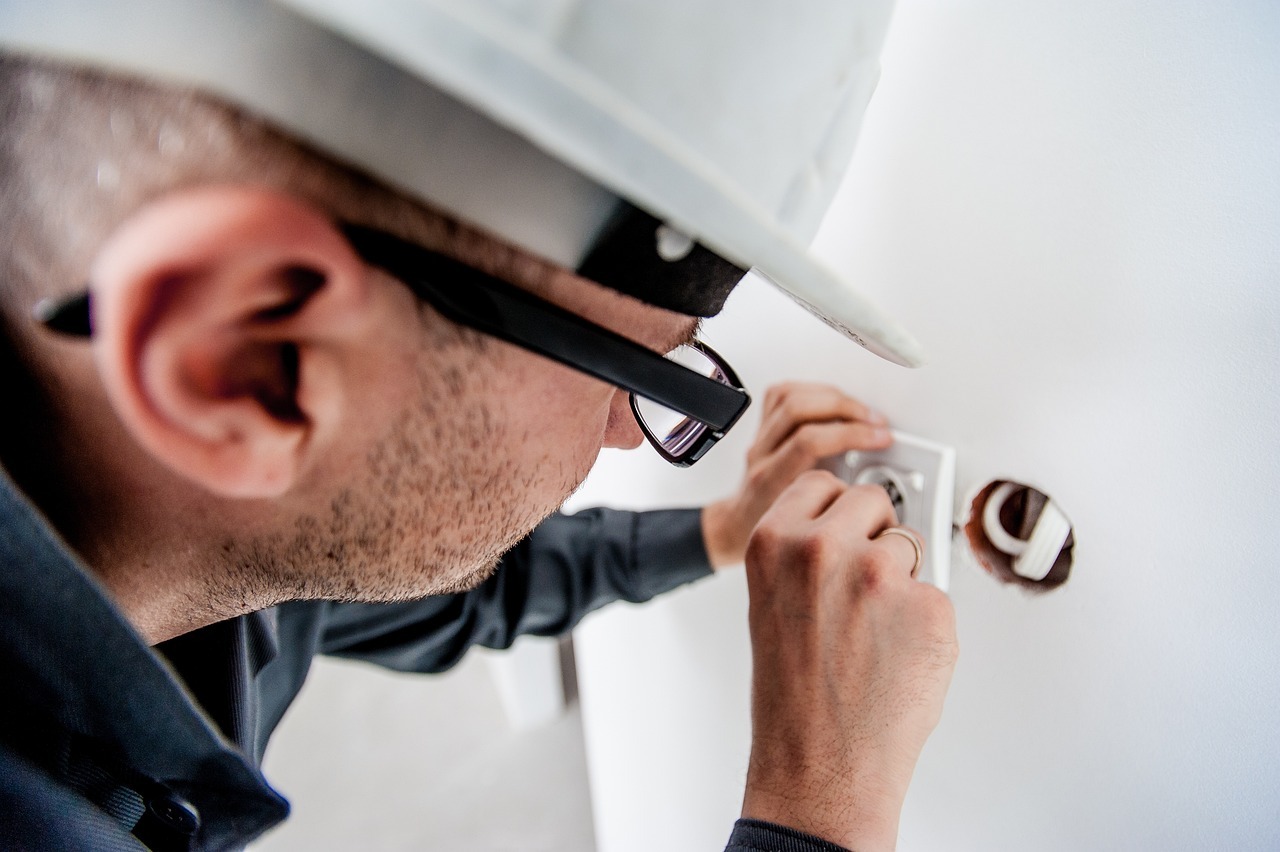
Can You Sell a House with Old Wiring?
Estimated reading time 7 minutes
There’s plenty to think of when you’re considering selling your property. From estate agent and legal fees to property staging, the financial outlay can quickly mount up.
That’s before you even consider potential hidden costs from largely hidden issues — like your property’s wiring. What if the electrical system is faulty — or worse, unsafe?
We want you to know where you stand when it comes to thinking about selling a house with old wiring. We’re about to get into how much it costs for a rewire, how to tell if you need one, the benefits, the costs and the process, and what your options are.
What are the benefits of rewiring a property?
For buyers, it increases the appeal of the property because it boosts energy efficiency, gives greater potential for future improvements and expansions, and can lower the chances of malfunctioning appliances.
For sellers, the extra appeal means they can expect a better price for their property — or rather they won’t have to worry about buyers dropping their offer when the survey reveals electrical issues. If you’re keen to sell your house fast, getting held up by survey snags can be a nightmare.
But short of getting a survey done yourself, how do you know if a house needs rewiring?
How do I know if my house needs rewiring?
Of course, no one wants to be out of pocket for work that’s not really necessary, especially when it’s hardly as simple as changing a lightbulb.
In an ideal world you’d get an inspection at least every ten years or so from a qualified electrician. Even if you’ve not had an inspection done yourself, it may be worth looking through any paperwork you inherited when you bought the place.
But let’s assume you don’t have the benefit of any inspection reports. There are a few different signs that your house may need rewiring. You may have one, some or even all of them. These include:
- Your lights flicker regularly, and your appliances malfunction often.
- Your property’s cables are damaged in some way — either frayed or split, maybe even sparking.
- The cables are old — unlike today’s PVCu coated ones, they may be insulated with rubber, fabric or even lead.
- You sometimes get an electric shock when switching a plug on or off.
- Your fuse box gives off a metallic, burning scent, or it makes crackling sounds. (Note: This one needs urgent attention as it’s particularly dangerous.)
The general advice is that if your property is over 30 years old, it probably needs rewiring. But what about if you’re getting ready to sell and move on? Is it still a good idea? To know for sure, let’s look at what’s involved in a rewire.
What does rewiring a property cost, and what’s involved?
So you might have an idea by now of whether your property could do with a rewire. Next let’s take a look at what it costs, what disruption is involved, and how long it takes.
How disruptive is rewiring a house?
There’s no denying that rewiring a house can be intensely disruptive. You’ll need to remove as much furniture as possible, including carpets, so that any cables under floorboards can be accessed.
How much does it cost to rewire a house, and what’s included?
Naturally, properties vary a lot, and so does the cost of a rewire — and costs mainly depend on the size of property, its age and its location. Still, it’s useful to have an idea of a ballpark figure.
Checkatrade’s 2024 rewire cost figures put the average ballpark cost of rewiring a one-bed flat at £3,900. Meanwhile, for a 3-bed house average cost is £6225, and for a 5-bed house you can expect to part with around £10,000. These costs almost always include the fittings as standard.
There are other potential costs too, like replastering, storage of furniture, removal of carpets, and any refitting that’s needed. Plus you may find it easier to completely vacate during the work, meaning you could need to pay for accommodation elsewhere.
There are two stages to the rewiring process. First, all the old wiring is replaced with new. Second, the new fittings (such as switches and sockets) are installed. Finally, the power is reconnected and the system is tested.
How long does it take to rewire a house?
Again, this varies depending on size, age and location. However, for a one-bed flat, you can expect the work to take place over anywhere between four days and a week.
Typically, it takes 6 to 10 days to rewire a 3-bedroom house. For a 5-bed property it can take around 10-15 days.
What can I do if I don’t want to rewire my house before selling it?
If reading about the considerable expense and disruption has you breaking out in a cold sweat, fear not. You do have other options.
Accept the price hit
Outdated electrics are a major turn-off for buyers — that’s just the way it is. If you choose not to rewire, you’ll likely need to accept that you’ll end up getting a lower offer for your property.
It might not feel like it, but you may end up with more money in your pocket by selling without rewiring. After all, there’s no guarantee that you’ll be able to get your money back when you sell.
Make some minor improvements
While a full rewire might not be possible, there could be some minor electrical issues you can address that would help to attract more buyers and avoid lowball offers.
Small actions like updating old sockets and light switches can improve your property’s appeal without breaking the bank. However, always prioritise safety over value for money. In other words, if you’re not completely confident in what you’re doing, hire someone who does.
Sell to a cash house buyer
Cash house buyers often buy properties in any condition, including those with outdated electrics. Because they have their own funds, they can complete the purchase process much quicker than traditional buyers. Plus, you won’t have to worry about the property sitting on the market for months.
For instance, as cash house buyers, SellHouseFast.co.uk has helped hundreds of homeowners sell up and move on. A less than perfect property doesn’t have to mean a protracted selling process.
What should you do next?
So now you know. You can if you want to. There are pros and cons to getting the rewiring done versus selling as is, and it depends on your priorities and on the specifics of the property.
On one hand, rewiring can increase buyer interest and potentially fetch a higher price, but it’s a significant investment in time and money and you can’t be certain it’ll be worth it.
On the other hand, selling as-is can lead to a lower selling price on the open market and attract fewer buyers, especially if the buyers’ survey reveals electrical concerns. This can then in turn lead to delays and uncertainty, even chain breaks.
Ultimately, the decision hinges on your timeline, budget and tolerance for risk and uncertainty.
The key is to get informed by exploring your options. And that can be as easy as giving us a few details and getting an offer from us.
At SellHouseFast.co.uk we buy any house, including properties in need of rewiring. Our personalised, UK-wide service makes it possible to sell your house fast. It could be the speed and certainty you’ve been looking for.
Get your free cash offer now and find out what we can do for you.


